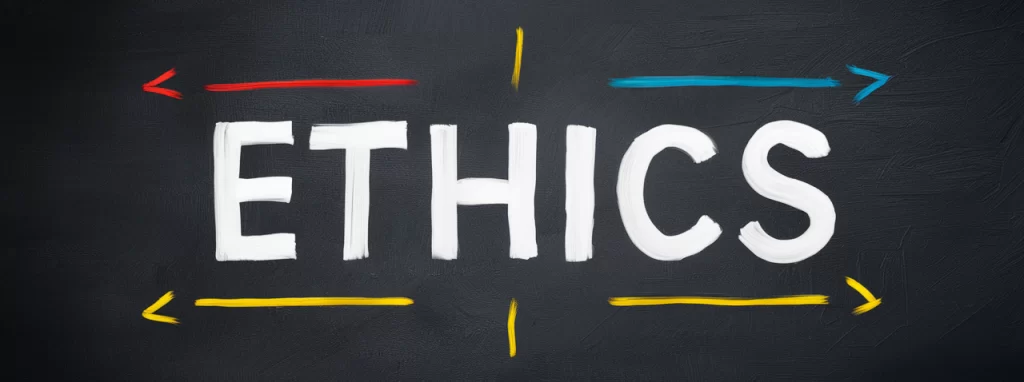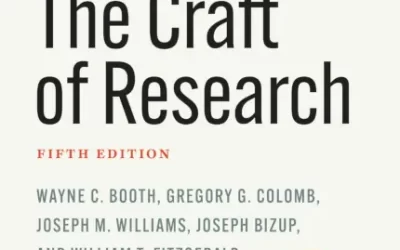One of the new buzz problems in scholarly publishing is the growing notion of citation manipulation by journals and publishing societies. We’ve previously written about the recent trend of “citation boosting services” selling fake AI-generated articles with citations from particular researchers in order to boost and inflate their personal metrics. However, what seemed to be a problem with individual researchers might be more widespread with some journal publishers being accused of citation misconduct.

Clarivate recently published their 2024 impact factors for journals and 17 journals did not have their impact factors published in the report due to potential citation manipulation. Journals not having their metrics published due to potential misconduct or distortion is not new, but this year saw a dramatic increase from 4 journals that were not listed in 2023 to 17 in 2024. In their breakdown of the citation statistics, 6 of the journals were found to have over 60 percent of their journal’s citations being self-citations, and 11 of the journals were found to have engaged in citation stacking involving two or more journal titles. While not having their impact factor listed does not affect a journal’s status on Web of Science or other Clarivate products, this can negatively impact authors associated with the journal and journal submission numbers.
What is an impact factor? It simply refers to the average number of times a manuscript published in a journal is subsequently cited in other journals each year. The idea is that the more citations a journal generates, the more important a journal is in their given field. However, the importance of the impact factor really depends on the journal and the journal subject and can fluctuate heavily depending on the year. Many medical and scientific journals saw their impact factor inflated during the COVID-19 crisis with papers focused on COVID research getting increased citations.
Many institutions live and die by impact factors when evaluating researchers. Researchers who apply for teaching positions, research fellowships, or lab positions at colleges and institutions will have their work heavily scrutinized. Higher up at institutions are generally more likely to bring on researchers who have work published in journals with higher impact factors as well as having work that have a larger number of citations (hence, the previously mentioned citation boosting services). Having a journal you published in not have an impact factor can affect a researcher’s job prospects, and it can lead to authors likely avoiding submitting to this journal in the future. This can lead to lower submission numbers for the journal or having lower quality submissions, which can then lead to fewer citations, which will also lower their impact factor (a whirlpool of doom shall we say).
The announcement from Clarivate comes on the heels of another report showing that two of the larger open access journals (MDPI and Frontiers) may have also engaged in excessive self-citations leading to inflated impact factors for the journals. The study analyzed citation models from 20 of the largest academic publishers across a 24-year period and determined that both journals had seemingly abnormally larger numbers of self-citations than the other journals in the study. In the past, authors have noted that editors at certain journals have requested citations from past articles in that journal be included in their article before acceptance leading to coerced self-citation (although there is no clear evidence that MDPI or Frontiers engaged in this).
Of course, the journals that are accused of inflating their self-citations or stacking citations with other sibling journals are fighting back against the claims that they are manipulating citations and believe their journals should have their impact factors listed by Clarivate. Robert Mendelsohn is the editor-in-chief of Climate Change Economics, a journal that was not listed due to citation stacking as it had “too many citations” from Springer’s Environmental Science & Pollution Research, which was also benched by Clarivate in the impact factor listing. While he acknowledges the heavy citation from the fellow Springer journal, he doesn’t believe the citations were due to any sort of manipulation or greater misconduct, stating: “Clarivate said this was unusual for an economics journal and therefore suspicious. We tried to explain that our journal was focused on climate change and that it was important to link the economic studies to natural science. This explained why so many authors had science citations. Clarivate apparently did not care and gave us a year to change our ways. Keeping climate change studies anchored in natural science, however, is important. So, we are not changing our citation policies.”
Other publishers state that changes in the journal’s focus or mission statement can lead to a smaller pool of journals to be used for outside citations. Editor-in-chief of Activities, Adaptation & Aging, Lim Weng Marc, argues that their journal losing its impact factor is a result of the “change in our journal’s focus in 2021, which created a niche, and possibly due to the fairly small number of articles we publish.” That journal published only 28 articles in 2023. This small number of articles could magnify heavy self-citation in just a few articles to appear to be a larger problem than it actually is.
As previously noted, these journals may have lost their impact factor, but they are still currently listed on Web of Science and are included in other Clarivate products so it has not impacted their overall access to readers. Some journals and publishers have stated that they will be investigating the stacking and self-citation claims in their journals and will take steps to rectify it including retracting papers that may have engaged in misconduct. A Clarivate spokesperson has stated that they will be reevaluating journals included on this list (as well as those that were given impact factors in 2024) over the next year with all titles “eligible for inclusion the Journal Citation Reports” in 2025. They also state that if self-citation and stacking does not improve for certain journals with further misconduct suspected, removal from coverage in Web of Science may be considered.
Do you believe that excessive self-citation and citation stacking is a growing problem? Do you think these journals deserve to be listed without impact factors? Let us know in the comments below.
By: Chris Moffitt
Chris is a Managing Editor at Technica Editorial




